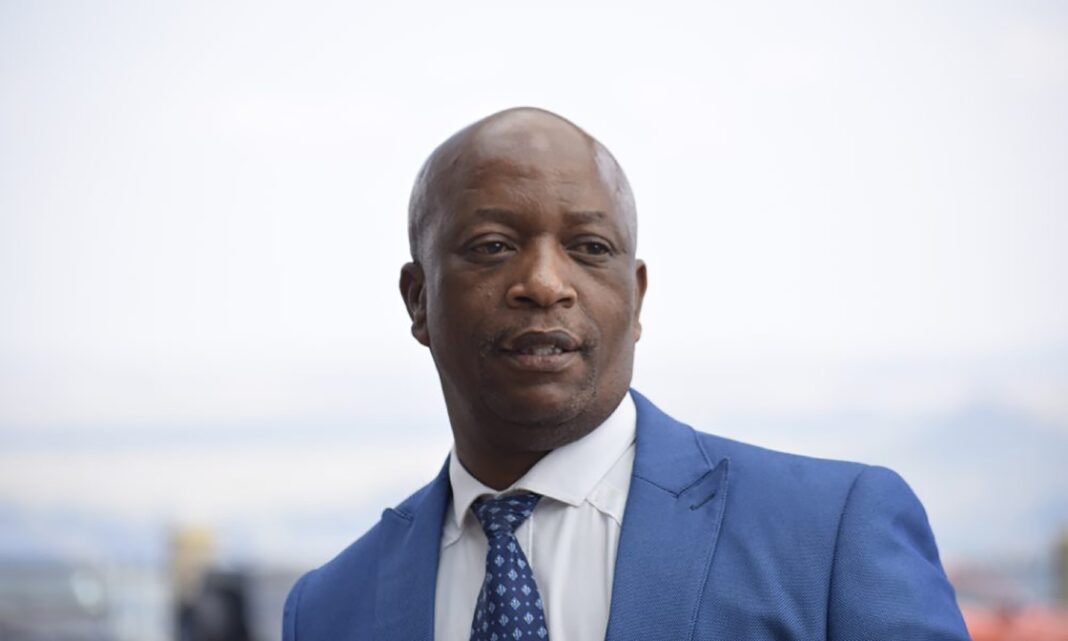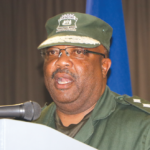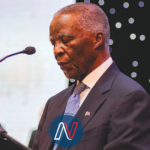Theko Tlebere
The recent arrest of Tšepo Lipholo, an MP from the Basotho Covenant Movement (BCM), has reignited a significant debate surrounding identity, land, and loyalty in Lesotho. Lipholo, who boldly refers to himself as the “King of Basutoland,” is currently facing serious charges of sedition and disrespecting the monarch. His supporters contend that he is merely advocating for the return of land that historically belonged to the Basotho nation, land that now lies within the boundaries of present-day South Africa. As the country grapples with these contentious claims, we must ask ourselves: how do we distinguish between Basutoland and Lesotho? Furthermore, who truly holds the right to that historical name, which carries so much weight and significance?
To comprehend this complex matter fully, we must revisit Africa’s colonial past. Almost every modern African state experienced a change of name at the point of independence. The Gold Coast became Ghana; Southern Rhodesia transformed into Zimbabwe; Upper Volta was renamed Burkina Faso; Nyasaland evolved into Malawi; Bechuanaland transitioned into Botswana. And what about Lesotho? It was once known as Basutoland. These names, including Basutoland, were colonial impositions, reflecting the interests and designs of imperial powers rather than representing the true aspirations of the African people.
When Lesotho gained its independence in 1966, it triumphantly shed its colonial name and embraced its authentic identity: Lesotho, the land of Basotho. Thus, Basutoland is not a separate entity from Lesotho; rather, it is the colonial designation of the very land we inhabit today. To suggest otherwise is to fundamentally misunderstand both our historical narrative and the sovereignty that Lesotho earned through blood, diplomacy, and unwavering determination.
Lipholo’s declaration of a “Basutoland” state, complete with new flags, anthems, and a self-proclaimed kingship, is not merely symbolic; it represents a direct challenge to the constitutional order of Lesotho. According to the Penal Code, it is a crime to provoke unrest or show disrespect towards the King, and this law is in place to safeguard the nation’s stability.
While it is one thing to raise legitimate questions about land dispossession, a genuine concern shared by many Basotho citizens, it is an entirely different matter to bypass established national institutions, declare a parallel government, and proclaim oneself ruler of a territory that legally and politically belongs to Lesotho. Only the Kingdom of Lesotho, under the leadership of His Majesty the King and the duly elected government, possesses the authority to pursue historical land claims. Any attempt by an individual or political movement to usurp that mandate not only constitutes a violation of the law but also poses a significant threat to national unity.
Let us not forget that Lesotho is not alone in facing historical territorial losses. Kenya lost land to Uganda. Cameroon and Nigeria have fought over the Bakassi Peninsula. Zimbabwe, Mozambique, and Namibia have all encountered border issues rooted in colonial-era treaties. In all these cases, claims were and are made through state channels, not by individuals claiming sovereign authority. It is not treason to remember history; it is treason to rewrite it in a way that undermines the very nation that history gave birth to.
While Lesotho is no longer a colony, we must recognise that Basutoland was the name of Lesotho before independence in 1966. When we became a sovereign nation, we inherited not only the territory but also the historical grievances of Basutoland. Therefore, the rightful heirs to that legacy are the people of the Kingdom of Lesotho, not any individual or political group.
That inheritance belongs to a constitutional monarchy led by His Majesty the King, safeguarded by the law, and represented through democratic institutions. If land is to be reclaimed or history corrected, it must be done by the state, not through parallel governments or self-appointed titles. To speak of Basutoland while rejecting the authority of Lesotho is not patriotism; it is political confusion.
Patriotism is not measured in catchy slogans or defiant declarations; it lies in respecting the Constitution, honouring the King, and strengthening the nation. Let us remember: Basutoland is not gone; it lives on in Lesotho. But only united, legally grounded, and with our King at the helm, can we truly honour its legacy. The future is now!
Summary
- His supporters contend that he is merely advocating for the return of land that historically belonged to the Basotho nation, land that now lies within the boundaries of present-day South Africa.
- According to the Penal Code, it is a crime to provoke unrest or show disrespect towards the King, and this law is in place to safeguard the nation’s stability.
- While it is one thing to raise legitimate questions about land dispossession, a genuine concern shared by many Basotho citizens, it is an entirely different matter to bypass established national institutions, declare a parallel government, and proclaim oneself ruler of a territory that legally and politically belongs to Lesotho.

Your Trusted Source for News and Insights in Lesotho!
At Newsday Media, we are passionate about delivering accurate, timely, and engaging news and multimedia content to our diverse audience. Founded with the vision of revolutionizing the media landscape in Lesotho, we have grown into a leading hybrid media company that blends traditional journalism with innovative digital platforms.








